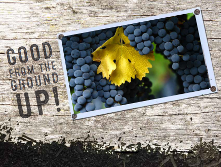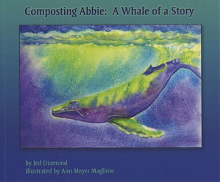The creation of compost has a long history dating back thousands of years, and the product itself is still highly popular as soil amendment for both large-scale farms and small home gardens. However, most people only have a vague idea of what compost is and definitions can vary. In simple terms, compost is made by blending together green waste (such as grass, leaves, and food waste) with brown waste (which includes woody materials like stalks, tree branches, and paper). Then, over a period of multiple months, these materials break down; the process of decomposition is promoted by grinding or shredding the materials, keeping the mixture wet, and providing necessary aeration by flipping the mixture or otherwise turning it. A well-cultivated compost pile results in a thriving environment that contains fungi, bacteria, and other decomposers, all of which contribute to the breaking down of the waste materials, as well the nutritious value of the compost itself.

One of the most important parts of creating compost is making sure the ingredients involved will not produce a final product that is a potential contaminant, which can result in a food safety issue. Proper aeration is necessary to meet FDA guidelines for producing safe compost, especially when in large batches. A compost pile with too hot a temperature for multiple consecutive days is a cause for concern, and some materials are not recommended for composting. For example, in smaller batches containing meat products can result in the mixture overheating, and also has an unpleasant smell that can attract animals. Adding ash or charcoal to one’s compost pile is also not recommended, as such materials contain high amounts of sulfur which can negatively affect plant growth. Though the composting process can seem complicated and difficult to get started yourself, there are plenty of free resources available on the web for composting. For more information on how to cultivate your own compost, below are a few links to pages that can get you started.
A good introduction to home composting:
United States Environmental Protection Agency: Composting at Home
Learn more about the uses of compost and its impact on the environment:
Compost and Mulch by CalRecycle
Dive deeper into perfecting your own compost pile:
Sydney Gardeners Ultimate Guide to Composting
List of materials that can and can’t be composted:
What Can Be Composted by Personal Creations
A guide to more resources on composting:
Compost Resources by Compost Foundation
 See Cold Creek's comprehensive Product Catalog for details on our products and their benefits.
See Cold Creek's comprehensive Product Catalog for details on our products and their benefits.
 Cold Creek Compost is proud to be featured in the children's book Composting Abbie, a tale of how a whale can be composted, and how a tragedy can be turned into an opportunity.
Cold Creek Compost is proud to be featured in the children's book Composting Abbie, a tale of how a whale can be composted, and how a tragedy can be turned into an opportunity.